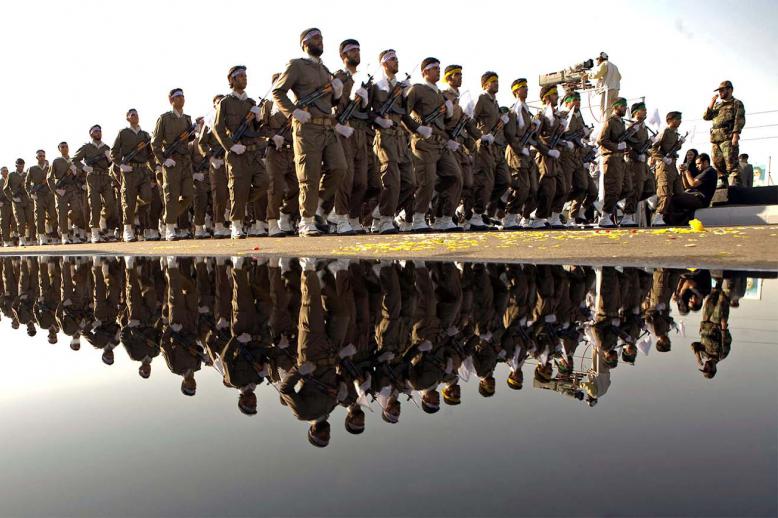Time for political change in Lebanon
The “Peaceful Resistance” initiative has been introduced in Lebanon. Its first statement called for unleashing the dynamics of change by stepping up people’s demands from focusing on economic and material concerns to pushing for political changes. The motto for the new phase of the popular movement is: “The time for politics has come.”
The shift was justified by authorities’ refusal to respond to protesters’ demands, making it necessary to change the rules of the political game in Lebanon.
Two months after the start of the Lebanon uprising, authorities still adhere to the option of reproducing themselves by appealing to the same rules that produced them in the first place. They are refusing any real change in rules that clustered all power in a closed circle of political and sectarian elite for more than a quarter of a century.
Its management of public and state affairs led Lebanon into a deep economic and financial crisis, caused primarily by a corrupt power-sharing system no longer bearable by the Lebanese citizens. This system wreaked havoc on the state and led to its failure to ensure even minimum needs of the people.
Neither the country’s growing fiscal and monetary deficits nor the worsening economic and living crises pushed authorities to respond to protesters’ demands of forming a rescue government from outside the political club. That would mean a government of honest and independent personalities whose primary goal would be to develop and implement a rescue plan and elections in six months.
It seems the relentless street demonstrations had no effect on the powers that be nor did the protests persuade them to abandon the quota system. It is this same system that is controlling efforts to form a new government, even though the members of the circles of power blame rampant corruption and the plundering of public wealth on the quota system. Despite this admission, they have no intention of changing their approach to forming a new government.
The dispute between the parties in power in Lebanon is based on two points of view that are not far apart but differ only in form because they are the same in content, which is to reproduce the same power structure.
The first is represented by Hezbollah and its allies, the president and the speaker of the House of Representatives. Their position is to form a techno-political government, a government that includes politicians and specialists and is appointed by parties to the authority.
The second is represented by outgoing Prime Minister Saad Hariri, who calls for the formation of a government of technocrats, specialists appointed by the parties to the authority.
From these views, it is obvious change proposed by the parties in power is to reproduce the previous governments.
When Samir al-Khatib turned down the offer to become prime minister, it was clear the parties do not want to risk letting go of Hariri because they, and especially Hezbollah, know that Hariri’s departure would exacerbate their weak position locally and with the international community.
Hezbollah’s experience with Hariri since the presidential settlement has shown it that there is no alternative to Hariri as prime minister, especially because he seems to be the most able person to deal with the international community in a way that, to an acceptable extent, serves Hezbollah’s interests.
Speaking of the international community, Lebanon does not appear to be in a strong position, especially since there are no indications that Lebanese authorities are ready to take steps that would inspire confidence. That confidence has become an international condition for supporting Lebanon, despite what is peddled by Hezbollah officials that “economic and financial support for Lebanon is conditional on forming a new government without interfering in its composition.”
There are indications that many countries that participated in the CEDRE Conference to aid Lebanon are not willing to give such help as long as Lebanon remains a prisoner to the existing power equation. It is this equation that has made it impossible for the state to reclaim its full sovereignty and that does not inspire confidence of it being able to manage the rescue operation.
The opportunity for political change in Lebanon takes on serious dimensions. The vital element is the unification of the Lebanese on the fact that change is a national demand and priority, with no sectarian, partisan or regional dissent. The challenge is that the desired change requires doing away with the quota system by securing alternatives that are the result of a real interaction between the components of the popular movement. This is especially so now that international conditions are ripe for the establishment of an authority that has the trust of the people and can rescue Lebanon with the greatest transparency and productivity.
The time for politics has come. Here is a powerful challenge facing the groups making up the popular movement, now that the official authorities have turned their back to protesters’ demands and forced the movement to move to a new stage of confrontation.
The movement must take advantage of the street’s momentum and vitality and of the pressure created by the crises and of the international desire to help Lebanon restore its position as a normal state. This desired state is the alternative to the collapse that was produced by the policies of the current one and which is a threat not just to Lebanon but also to other countries.
Ali al-Amin is a Lebanese writer.
This article was originally published in The Arab Weekly.







